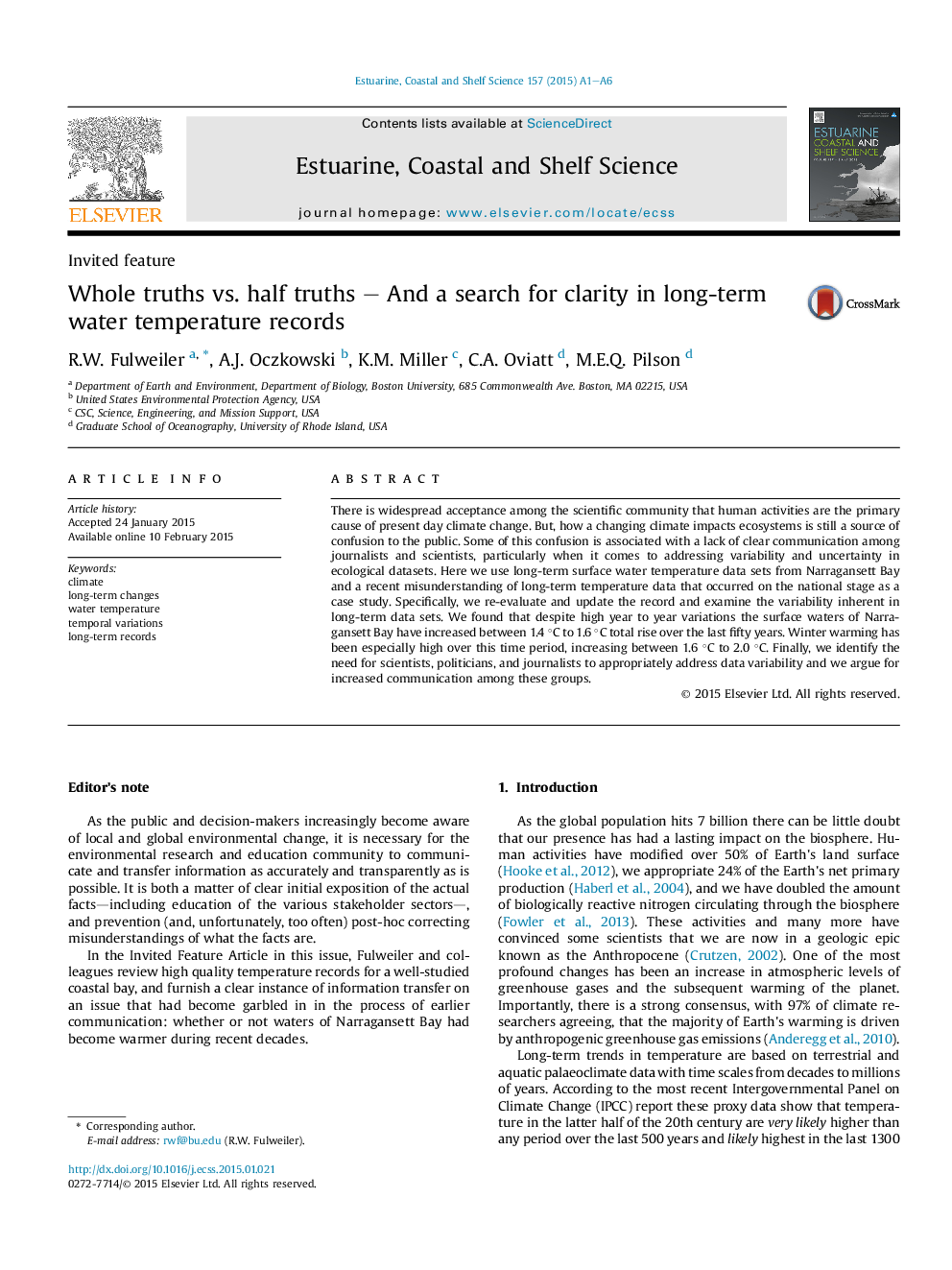| Article ID | Journal | Published Year | Pages | File Type |
|---|---|---|---|---|
| 4539480 | Estuarine, Coastal and Shelf Science | 2015 | 6 Pages |
•We examine three surface water temperature datasets from Narragansett Bay, RI.•Surface water temperature has significantly increased over the last five decades.•Total surface water temperature increase ranges from 1.4 to 1.6 °C since 1960.•Surface water warming occurred in all seasons with the greatest increase in winter.•Scientists and journalists need to communicate data variability more clearly.
There is widespread acceptance among the scientific community that human activities are the primary cause of present day climate change. But, how a changing climate impacts ecosystems is still a source of confusion to the public. Some of this confusion is associated with a lack of clear communication among journalists and scientists, particularly when it comes to addressing variability and uncertainty in ecological datasets. Here we use long-term surface water temperature data sets from Narragansett Bay and a recent misunderstanding of long-term temperature data that occurred on the national stage as a case study. Specifically, we re-evaluate and update the record and examine the variability inherent in long-term data sets. We found that despite high year to year variations the surface waters of Narragansett Bay have increased between 1.4 °C to 1.6 °C total rise over the last fifty years. Winter warming has been especially high over this time period, increasing between 1.6 °C to 2.0 °C. Finally, we identify the need for scientists, politicians, and journalists to appropriately address data variability and we argue for increased communication among these groups.
Graphical abstractFigure optionsDownload full-size imageDownload high-quality image (249 K)Download as PowerPoint slide
